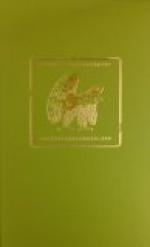“It was useless to try to go down-stream; before dawn Indians would patrol the whole canyon; neither could I double back to the Dosewallups where they had as surely left a watch; my only course was to risk the log crossing at once, before the moon rose, and strike southward to the Lilliwaup, where, at the mouth of the gorge, I knew the mail steamer made infrequent stops. I began to work up between the gnarled roots to the top of the trunk and pushed laboriously with infinite caution out over the channel. I felt every inch of that log, but once a dead branch snapped short in my hand, and the noise rang sharp as a pistol shot. I waited, flattening myself to the bole, but the thunder of the river must have drowned the sound; the Indians did not stir. So at last I came to the danger point. Groping for the break, I found it started underneath, reaching well around. Caused probably by some battering bulk in the spring floods, and widening slowly ever since, it needed only a slight shock to bring it to a finish. I grasped a stout snag and tried to swing myself over the place, but there came a splitting report; and there was just time to drop astride above that stub of limb, when the log parted below it, and I was in the river. I managed to keep my hold and my head out of water, though the current did its best to suck me under. Then I saw that while the main portion of the tree had been swept away, the top to which I clung remained fixed to the bank, wedged no doubt between trunks or boulders. As I began to draw myself up out of the wash, a resinous bough thrown on the fire warned me the Indians were roused, and I flattened again like a chameleon on the slippery incline. They came as far as the rill and stood looking across, then went down-stream, no doubt to see whether the trunk had stranded on the riffles below the cataract. But they were back before I could finish the log, and the rising moon illuminated the gorge. I was forced to swing to the shady side of the snag. The time dragged endlessly; a wind piping down the watercourse cut like a hundred whips through my wet clothes; and I think in the end I only kept my hold because my fingers were too stiff to let go. But at last the Indians stretched themselves once more on the ground; their fire burned low, and I wormed myself up within reach of a friendly young hemlock, grasped a bough, and gained shelving rock. The next moment I relaxed, all but done for, on a dry bed of needles.”
Tisdale paused, looking again from face to face, while the humor gleamed in his own. “I am making a long story of it,” he said modestly. “You must be tired!”
“Tired!” exclaimed Elizabeth, “It’s the very best story I ever heard. Please go on.”
“Of course you escaped,” supplemented Marcia Feversham, “but we want to know how. And what was your chum doing all the time? And wasn’t there another woman?”
Frederic Morganstein rumbled a short laugh. “Maybe you made the Lilliwaup, but I’ll bet ten to one you missed your steamer.”




